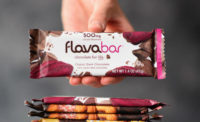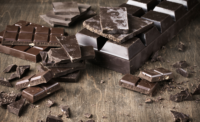Woodblock Chocolate strives to use the best cacao in its products, and its new collaboration with the Cocoa Research Center in St. Augustine, Trinidad and Tobago, is exactly that.
The manufacturer and the center, a part of the University of the West Indies, will work together to create a chocolate bar made from more than 2,400 types of cacao. This cacao is part of the Cocoa Research Center’s International Cocoa Genebank — one of the most diverse collections of cocoa trees in the world.
"We are so excited to work with the Cocoa Research Center because they work directly with cocoa farmers around the world offering training programs and resources devoted to the sustainable propagation of cacao," owner and head chocolate maker Charley Wheelock says. "If you like chocolate, this is a great way to help keep it around!"
Because there are only 65 pounds of the chocolate in existence, the Trinidad Fundare bar will have a high price tag of $100, but all proceeds will contribute to the genebank’s “living library” of cacao.
"The work they do is crucial to the future of cacao," Wheelock says about the genebank.
The sustainability of the cultivation process in the genebank is a key attribute to its contribution to Woodblock Chocolate, which looks for beans with not only the best flavor but also the best impact on the environment.
The company first interacted with Trinidadian chocolate on a trip to Gran Couva, a region known for its cocoa.
Wheelock and his wife Jessica founded Woodblock Chocolate in 2010 as the first bean-to-bar chocolate manufacturer in Portland, Ore. Production happens on site, with equipment used to roast, conche, age and temper the chocolate. The craft chocolate makers get creative with retooled machines, such as a refurbished peanut roaster from 1910.
The new Trinidad Fundare bar is slated to be released in Spring 2015.
While waiting on the Trinidadian bar though, Woodblock Chocolate recently released its holiday bar, a confection that blends earthy cacao from Ecuador with fruity, caramel-like cacao from Peru. Other options include salt, sesame seed, and salt and nibs.







